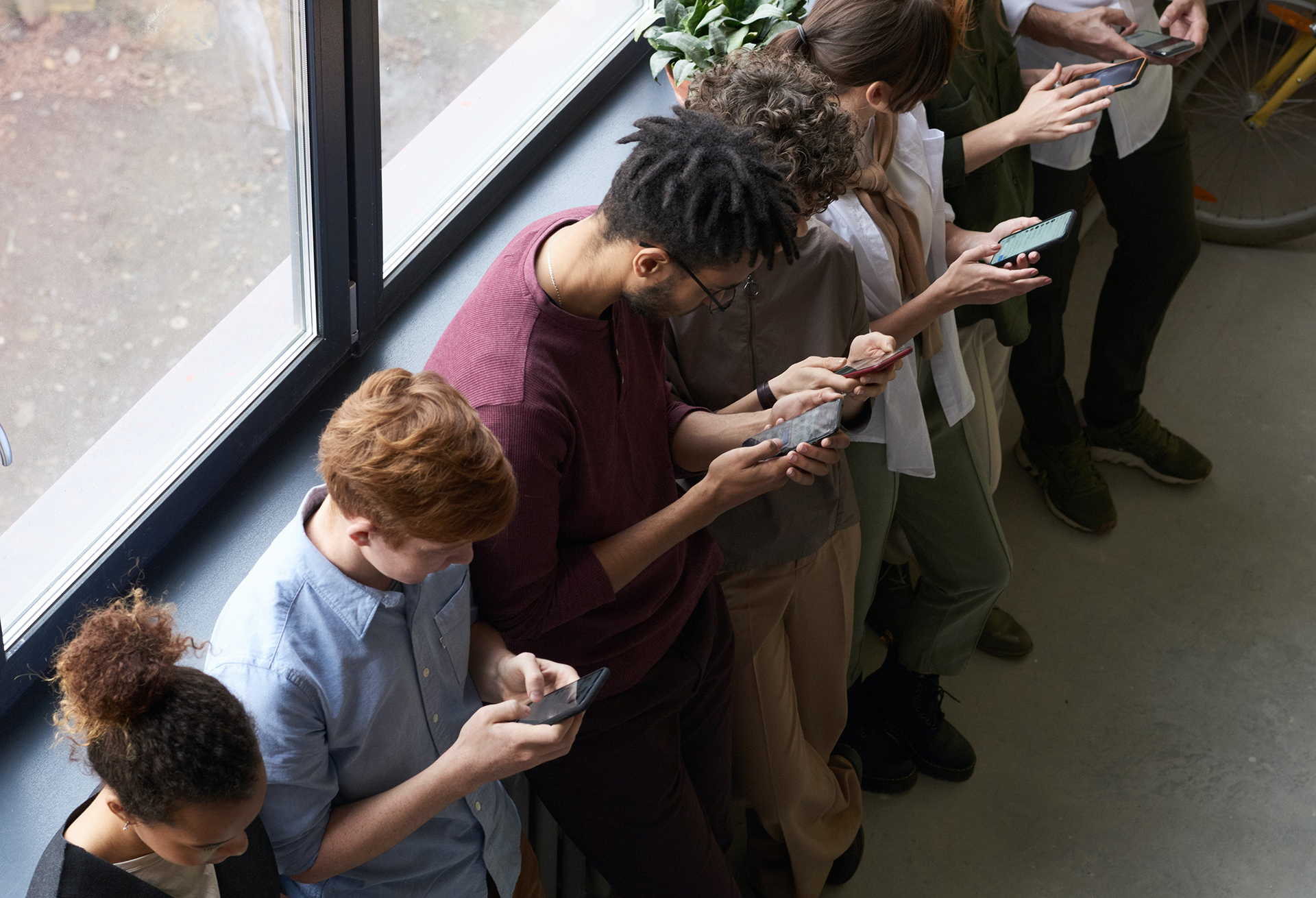OPINIONS
Anna Kynthia Bousdoukou
How are young people using social media to bring about social change?

August 25 2022
I have seen the impact of social media on social change through organizing protests in Nigeria and in movements such as #ENDSARS, #BringBackOurGirls, and #BlackLivesMatter, which were started by driven groups of ordinary people, including individuals like me who wanted to challenge oppressive systems that infringed the rights of others and ended up not only enacting change but also becoming symbols of hope.
These campaigns on social media were effective because they were able to change laws, regulations, and even governmental structures through engagement, awareness raising, and the creation of online communities where individuals can connect and find support, information, through sharing and promoting civic involvement, mobilizing, and organizing through documenting acts of violence and exercising free speech.
While social media can’t create social change and movements just by themselves, they play a significant and vital role in bringing about actual social change. Social media communication has the ability to create ideas, beliefs, and opinions, change how individuals interact with one another and communicate, and this has influenced how they think about and interpret problems. Social change activists like me, who believe in spreading their views to the general public, have completely utilized this medium, allowing it to play a vital role in the evolving social and political processes.
The scope and magnitude of the impact these movements have created through social media are impressive: globalization; the transcending of protests across borders; uniting and influencing populations on issues of systemic injustice; social justice for victims; accountability- ineffective politicians have been forced to resign; changing policies; challenging long-standing harmful norms; developing open governance; authoritarian political climates have been exposed, including horrifying states of poor governance in countries like Nigeria, in the case of ENDSARS; encouraging citizen action in monitoring the efficiency of public service in countries, crowdfunding on important causes, and participation in elections.
As an early adopter of social media innovation, like Twitter, I have attracted significant-sized audiences of hundreds of thousands, alongside mobilizing young people via social media. In fact, the public opinion court is being slowly replaced by Twitter, one of the very few places where one may analyze public opinion and feel the pulse of the average person. No other medium captures the unfiltered feelings of hundreds of Nigerians on topics that concern them and their local communities.
The cornerstone of political democracy is, in essence, good communication, including discourse and debate, and such communication is only possible in such public spaces. The form of discussions on social media introduces change by forming a widespread consensus among people, thus succeeding in granting us the democracy we have long yearned for and is now the most effective tool for inspiring people to create change.
This is crucial for those who reside in nations with high rates of political corruption and instability, internal conflict, oppression of women, rising levels of autocracy and digital repression, human rights violations, and humanitarian crises because they require safe spaces to organize, get their voices heard and hold their governments accountable. Young people in these countries lack direct access to institutional systems and structures within governments, the media, and the private and civil society sectors, limiting their ability to advocate for their rights. In the few cases where they have had the ability to influence or make decisions, barriers within complex infrastructure have tended to limit implementation, destroying their confidence and trust in such mechanisms.
The impact of social media on social change is further demonstrated by the fact that states used to have a monopoly on public discourse through strict regulations, ownership of media, and funding of media outlets that advance government agendas and interests. Newspaper editors used to have the exclusive right to influence political discourse. Politicians scrambled to dominate the narrative from those revered editorial boardrooms because they determined what was essential to the average citizen. The reasoning made sense. You could influence how and what the public thought if you could slant reports and editorials in your favor. The editors of newspapers no longer have to explain what is important to young people. The public, not politicians, now determines what the news is. Such an amount of democratization of public discourse was unexpected by politicians in this generation.
Social movements represent a new era of youth from all over the world who have never been seen or heard but have now made it clear that oppressive governments will no longer ignore them. Social media has become one of the defining factors of such movements as a safe space to access and mobilize. If anyone was ever in doubt of the power of social media to shape national dialogues, the reach and impact of Twitter and the conversations across youth movements in Africa are gradually dispelling such doubts.
The conventional response has been censorship and propaganda, as they perceive social movements for change as a threat. Social media are currently restricted in numerous countries; neither, however, is entirely effective in silencing citizens with access to social media.
In Nigeria, Twitter was banned in 2021 and citizens responded by using virtual private networks to access Twitter, rendering the action almost useless. This demonstrates that governments recognize the ability of social media to effect social change and, as a result, turn to repression, showing that the state’s interest is to manage and restrain public protest and social movements. Similar to how they have been used in the past to suppress street activists, physical and legal threats are currently being used to suppress digital protestors and movements e.g., acts of violence, arrests, legal actions, travel and financial restrictions against protesters by the government in Nigeria during and after the #EndSARS protests.
Through social media, young people are creating their own leadership structures via mobilization, crowdfunding, volunteering in community groups, amplifying the campaigns of young people, putting their own issues on the front burner, and participating in electoral processes, especially as elections approach, in Nigeria and other countries in Africa. Despite repression, this shift is necessary, since history has shown that tyranny cannot last in the face of persistent resistance by the oppressed.
The rules of the game have changed, leaving politicians with little choice, but to build their campaigns around truth and a proven track record of success. Change will take place anyway.


